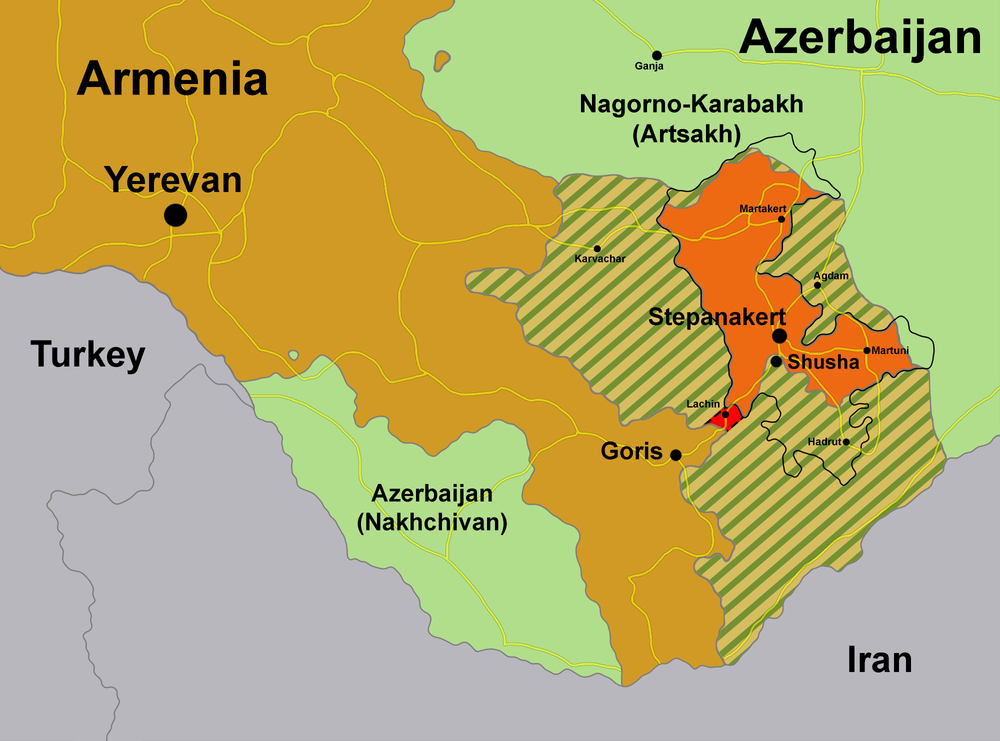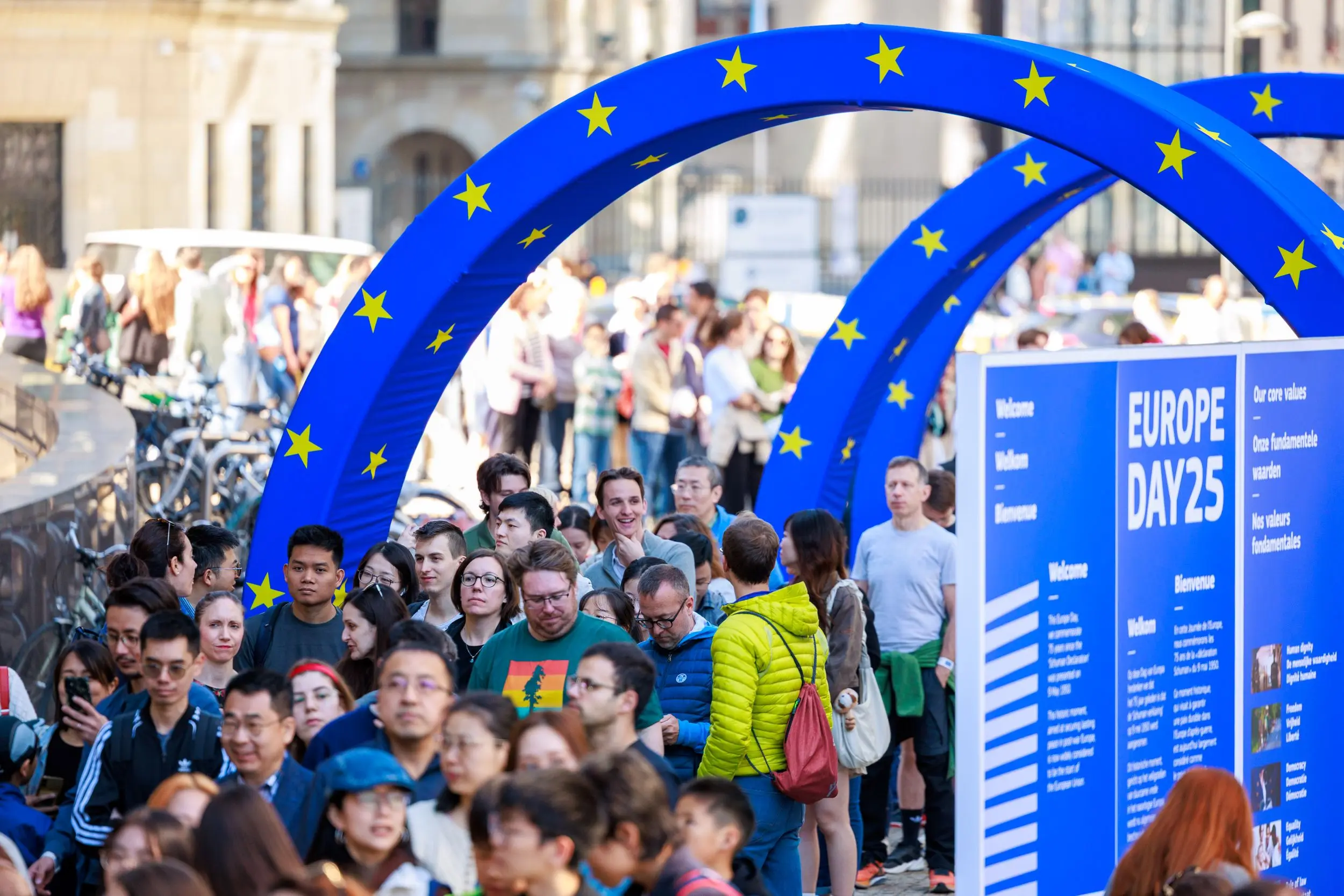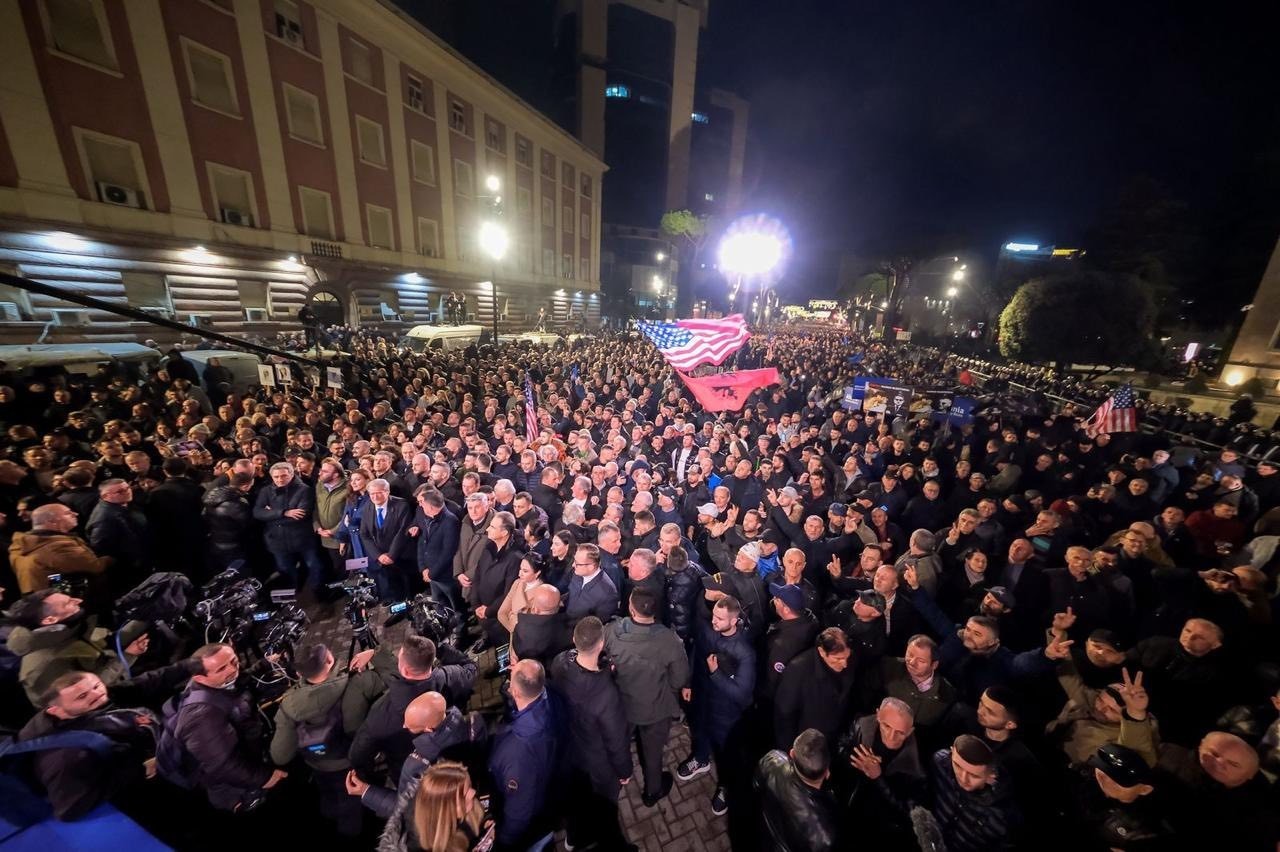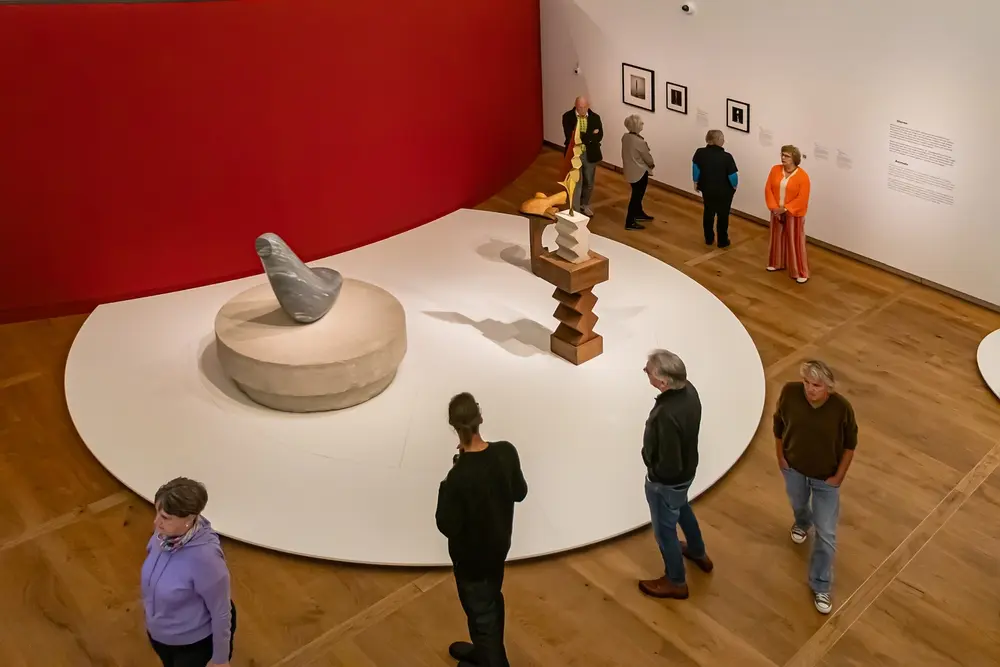De facto Karabakh President resigns, replacement appointed
The resignation of Arayik Harutyunyan and the change of leadership in Nagorno Karabakh open a new phase of uncertainty in the region and for the future of relations between Karabakh and Azerbaijan

De-Facto-Karabakh-President-Resigns-Replacement-Appointed
Map of Nagorno-Karabakh after 2020 war @Shutterstok
Arayik Harutyunyan, the de facto president of the former Nagorno Karabakh Autonomous Oblast (NKAO) stepped down on 1 September. The development was not unexpected and there had already been much speculation about his departure. Critics accuse him of failing to resolve the situation in the breakaway region currently under siege by Baku since 12 December.
“My background and Azerbaijan’s attitude towards it are […] generating significant problems with regard to our further steps and [flexibility],” Harutyunyan wrote on Facebook a day earlier. “Besides, the defeat in the war and the resulting difficulties that emerged in the country, reduced trust in the authorities and especially the president, which represents a very serious obstacle to further good governance.”
Leaving office with Harutyunyan was de facto State Minister Gurgen Nersisyan and his advisor, Artak Beglaryan. Samvel Shahramanyan was appointed in Nersisyan’s place and widely considered to be Harutyunyan’s hand-picked successor. The constitution had already been changed to effectively allow the de facto parliament select a successor rather than allow the electorate to vote for one.
Along with Harutyunyan’s own political faction, three others in Karabakh’s National Assembly also supported Shahramanyan’s nomination for the post leaving only controversial former military commander Samvel Babayan as the sole dissenting voice. Babayan’s nomination was rejected as he failed to meet the residency and citizenship requirements for running.
The same had occurred in 2019 in the run-up to the election of the internationally unrecognised presidency and parliament in 2020 that brought Arayik Harutyunyan to power. At the time, Babayan alleged that he had been “illegally stripped” of his “citizenship” in 2006 without being informed.
The notorious strongman, once considered the most powerful in Karabakh, had been imprisoned in 2000 after being accused of masterminding a botched assassination attempt on then de facto Karabakh president Arkhadi Ghukasyan. In 2017, Babayan was imprisoned again accused of attempting to smuggle weapons including rocket launchers from Georgia into Armenia ahead of parliamentary elections.
Most recently, Babayan further fuelled further controversy by advocating for direct talks between Stepanakert and Baku as well as establishing a common market on the decades-long closed Askeran-Aghdam road connecting Karabakh with Azerbaijan proper. Currently, it is the issue of the Aghdam road that continues to keep an agreement on Lachin in stalemate.
“European Council President Charles Michel has proposed a step-by-step approach which would reflect a sequencing in the full-fledged operation of the Lachin corridor and the opening of the Ağdam route,” the European Union had noted in a statement issued the same day as Harutyunyan’s resignation.
“Sequencing of these steps and the type of cargo that would be delivered by each of these roads, as well as attendant procedures, have been the core of the recent discussions, the statement continued. “Dialogue between Baku and representatives of Armenians living in the former Nagorno-Karabakh Autonomous Oblast will be essential in this regard.”
Despite Babayan’s criticism of the clear transfer of power, a move that some allege is simply a way to bring back pro-Russian hardline elements linked to former Karabakh leaders Arkhady Ghukasyan and Bako Sahakyan, Shahramanyan was easily selected by deputies in the 33-seat National Assembly. Babayan also organised a demonstration outside as the vote was held but failed to attract sufficient support.
Shahramanyan was inaugurated as Karabakh’s de facto president on 10 September.
The European Union criticised the vote but stated that while it “does not recognise the constitutional and legal framework within which [elections] have been held” it does believe it “important for the for the Karabakh Armenians to consolidate around de facto leadership that is able and willing to engage in result-oriented discussions with Baku. The EU is committed to supporting this process.”
Meanwhile, in Yerevan, opposition leaders opposed to a peace agreement with Azerbaijan congratulated Shahramanyan. Armenian Prime Minister Nikol Pashinyan, however, did not issue the customary felicitations as has been the case before. It is likely that if Pashinyan recognised Shahramanyan as president then he would contradict his own previous statements about recognising Azerbaijan’s territorial integrity.
On 11 September, Pashinyan broke that silence in an interview with Armenia’s Public Tv saying that he issued no statement because “the situation is such that there is not much to congratulate.”
In recent days, a build up of Azerbaijani military forces close to the Karabakh Line of Contact (Loc) as well as the border with Armenia have concerned many that a new conflict might be imminent. The outcome of such a new war would prove even more predictable and devastating than the one waged in 2020. Meanwhile, the partial blockade of the Lachin highway by Baku further highlights its vulnerability.
Indeed, previous attempts to open the Lachin Corridor even for for humanitarian supplies in return for opening a supplemental route via Aghdam in Azerbaijan proper have failed. But on 9 September following Shahramanyan’s selection by the de facto parliament, the Russian Red Cross Society said it would transfer humanitarian assistance via Baku. A lone truck eventually arrived in Karabakh via Baku and Aghdam on the morning of 12 September.
Karabakh sees the acceptance of supplies through Aghdam as tantamount to accepting eventual integration into Azerbaijan. It is for this reason that while it accepted a single truck from the Russian Red Cross it has not allowed Azerbaijani Red Crescent to pass into territory under the control of the Russian peacekeepers.
As one journalist wrote for Yerevan-based Alia Media , and given that Shahramanyan was not voted in by the population, Arayik Harutyunyan “effectively [became] the last elected head of [Nagorno Karabakh]. “[…] Araik Harutyunyan, even with his failed and flawed experience, was the last embodiment of [Karabakh] statehood,” Karpis Pashoyan opined.
De facto Karabakh President resigns, replacement appointed
The resignation of Arayik Harutyunyan and the change of leadership in Nagorno Karabakh open a new phase of uncertainty in the region and for the future of relations between Karabakh and Azerbaijan

De-Facto-Karabakh-President-Resigns-Replacement-Appointed
Map of Nagorno-Karabakh after 2020 war @Shutterstok
Arayik Harutyunyan, the de facto president of the former Nagorno Karabakh Autonomous Oblast (NKAO) stepped down on 1 September. The development was not unexpected and there had already been much speculation about his departure. Critics accuse him of failing to resolve the situation in the breakaway region currently under siege by Baku since 12 December.
“My background and Azerbaijan’s attitude towards it are […] generating significant problems with regard to our further steps and [flexibility],” Harutyunyan wrote on Facebook a day earlier. “Besides, the defeat in the war and the resulting difficulties that emerged in the country, reduced trust in the authorities and especially the president, which represents a very serious obstacle to further good governance.”
Leaving office with Harutyunyan was de facto State Minister Gurgen Nersisyan and his advisor, Artak Beglaryan. Samvel Shahramanyan was appointed in Nersisyan’s place and widely considered to be Harutyunyan’s hand-picked successor. The constitution had already been changed to effectively allow the de facto parliament select a successor rather than allow the electorate to vote for one.
Along with Harutyunyan’s own political faction, three others in Karabakh’s National Assembly also supported Shahramanyan’s nomination for the post leaving only controversial former military commander Samvel Babayan as the sole dissenting voice. Babayan’s nomination was rejected as he failed to meet the residency and citizenship requirements for running.
The same had occurred in 2019 in the run-up to the election of the internationally unrecognised presidency and parliament in 2020 that brought Arayik Harutyunyan to power. At the time, Babayan alleged that he had been “illegally stripped” of his “citizenship” in 2006 without being informed.
The notorious strongman, once considered the most powerful in Karabakh, had been imprisoned in 2000 after being accused of masterminding a botched assassination attempt on then de facto Karabakh president Arkhadi Ghukasyan. In 2017, Babayan was imprisoned again accused of attempting to smuggle weapons including rocket launchers from Georgia into Armenia ahead of parliamentary elections.
Most recently, Babayan further fuelled further controversy by advocating for direct talks between Stepanakert and Baku as well as establishing a common market on the decades-long closed Askeran-Aghdam road connecting Karabakh with Azerbaijan proper. Currently, it is the issue of the Aghdam road that continues to keep an agreement on Lachin in stalemate.
“European Council President Charles Michel has proposed a step-by-step approach which would reflect a sequencing in the full-fledged operation of the Lachin corridor and the opening of the Ağdam route,” the European Union had noted in a statement issued the same day as Harutyunyan’s resignation.
“Sequencing of these steps and the type of cargo that would be delivered by each of these roads, as well as attendant procedures, have been the core of the recent discussions, the statement continued. “Dialogue between Baku and representatives of Armenians living in the former Nagorno-Karabakh Autonomous Oblast will be essential in this regard.”
Despite Babayan’s criticism of the clear transfer of power, a move that some allege is simply a way to bring back pro-Russian hardline elements linked to former Karabakh leaders Arkhady Ghukasyan and Bako Sahakyan, Shahramanyan was easily selected by deputies in the 33-seat National Assembly. Babayan also organised a demonstration outside as the vote was held but failed to attract sufficient support.
Shahramanyan was inaugurated as Karabakh’s de facto president on 10 September.
The European Union criticised the vote but stated that while it “does not recognise the constitutional and legal framework within which [elections] have been held” it does believe it “important for the for the Karabakh Armenians to consolidate around de facto leadership that is able and willing to engage in result-oriented discussions with Baku. The EU is committed to supporting this process.”
Meanwhile, in Yerevan, opposition leaders opposed to a peace agreement with Azerbaijan congratulated Shahramanyan. Armenian Prime Minister Nikol Pashinyan, however, did not issue the customary felicitations as has been the case before. It is likely that if Pashinyan recognised Shahramanyan as president then he would contradict his own previous statements about recognising Azerbaijan’s territorial integrity.
On 11 September, Pashinyan broke that silence in an interview with Armenia’s Public Tv saying that he issued no statement because “the situation is such that there is not much to congratulate.”
In recent days, a build up of Azerbaijani military forces close to the Karabakh Line of Contact (Loc) as well as the border with Armenia have concerned many that a new conflict might be imminent. The outcome of such a new war would prove even more predictable and devastating than the one waged in 2020. Meanwhile, the partial blockade of the Lachin highway by Baku further highlights its vulnerability.
Indeed, previous attempts to open the Lachin Corridor even for for humanitarian supplies in return for opening a supplemental route via Aghdam in Azerbaijan proper have failed. But on 9 September following Shahramanyan’s selection by the de facto parliament, the Russian Red Cross Society said it would transfer humanitarian assistance via Baku. A lone truck eventually arrived in Karabakh via Baku and Aghdam on the morning of 12 September.
Karabakh sees the acceptance of supplies through Aghdam as tantamount to accepting eventual integration into Azerbaijan. It is for this reason that while it accepted a single truck from the Russian Red Cross it has not allowed Azerbaijani Red Crescent to pass into territory under the control of the Russian peacekeepers.
As one journalist wrote for Yerevan-based Alia Media , and given that Shahramanyan was not voted in by the population, Arayik Harutyunyan “effectively [became] the last elected head of [Nagorno Karabakh]. “[…] Araik Harutyunyan, even with his failed and flawed experience, was the last embodiment of [Karabakh] statehood,” Karpis Pashoyan opined.









